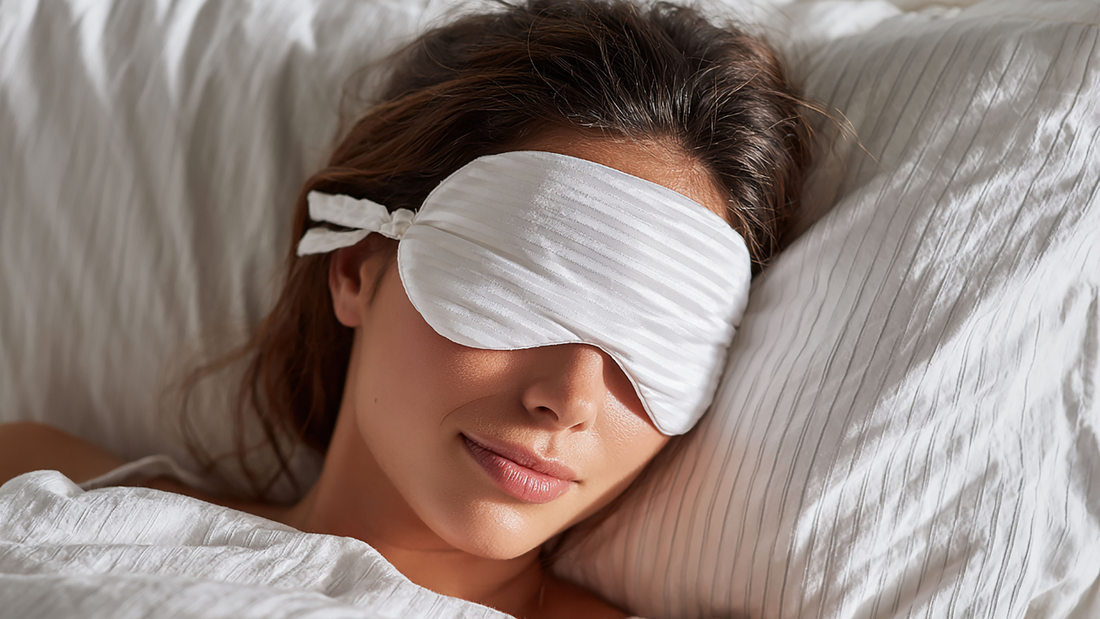
Sleep Apnea Treatment Without CPAP
Share
If you’ve been diagnosed with sleep apnea, your doctor may have recommended a CPAP (continuous positive airway pressure) machine. CPAP is effective, but not everyone can tolerate wearing a mask and sleeping with a machine every night. If you’re looking for sleep apnea treatment without CPAP, you’re not alone.
The good news? There are many CPAP alternatives, ranging from simple lifestyle changes to oral appliance therapy, that can help improve breathing during sleep. In this article, we’ll explore natural approaches first, then cover other options that are available if those aren’t enough.
Why Seek CPAP Alternatives?
The CPAP mask delivers pressurized air that prevents airway collapse, but for some people it comes with challenges:
-
Discomfort wearing a mask all night
-
Claustrophobia
-
Dryness, congestion, or skin irritation
-
Noise from the machine disturbing sleep
If you’ve ever searched “how to cure sleep apnea naturally at home without CPAP” or “sleep apnea solutions without CPAP,” you’re probably looking for something less invasive and easier to use.
Natural Approaches to Treating Sleep Apnea
For mild cases, natural alternatives to CPAP machines can make a significant difference in sleep quality. These methods focus on improving overall health and reducing the factors that contribute to airway blockage.
1. Weight Management
Carrying extra weight, especially around the neck and airway, is one of the strongest risk factors for obstructive sleep apnea. Even a small amount of weight loss can improve airflow and reduce snoring.
2. Exercise and Breathing Training
Regular exercise strengthens respiratory muscles and supports better breathing patterns. In addition, exercises for the tongue and throat, sometimes called “myofunctional therapy,” can tone the airway muscles, reducing collapse during sleep.
3. Positional Therapy
For some, sleep apnea is worse when lying on one's back. Using positional therapy devices or specialized pillows encourages side sleeping and helps keep the airway open naturally.
4. Sleep Hygiene
Poor sleep patterns and irregular schedules can worsen fatigue and sleep disturbances. Practicing good sleep hygiene, such as going to bed at the same time each night, avoiding screens before bed, and limiting alcohol or sedatives, can enhance restorative sleep.
5. Avoiding Triggers
Alcohol, sedatives, and smoking relax the muscles around the airway, making apnea episodes more likely. Reducing or eliminating these habits can be a natural alternative to CPAP machines.
Oral Appliance Therapy: A Comfortable CPAP Alternative
If lifestyle changes aren’t enough, the most common sleep apnea mask alternative is oral appliance therapy. These dentist-prescribed devices resemble a mouth guard and gently shift the jaw forward, preventing airway collapse.
Benefits include:
-
Compact and portable (no tubing or machine)
-
Comfortable and discreet
-
Effective for many mild to moderate cases
-
A no mask solution that improves sleep quality
Oral appliances are a safe, proven way to treat sleep apnea without CPAP and are often considered the first line of treatment after natural methods.
Other Non-CPAP Devices
If you’re searching for sleep apnea devices other than CPAP, there are several options available:
-
EPAP (expiratory positive airway pressure) devices – Small, disposable valves placed over the nostrils that create resistance on exhalation, helping to keep airways open.
-
Nasal dilators – While not a full treatment for sleep apnea other than CPAP, they can improve airflow and reduce mild sleep disturbances.
-
Micro CPAP – A newer concept still being studied, these tiny devices fit in the nostrils and aim to provide airway support without a traditional machine.
These may not be as widely available or as effective as CPAP, but they can be helpful sleep apnea solutions without CPAP for some patients.
Can You Cure Sleep Apnea Naturally at Home?
A frequent question is: how to cure sleep apnea naturally at home without CPAP. While lifestyle adjustments and oral devices can greatly reduce symptoms, there is no guaranteed “cure” without medical guidance. Sleep apnea is a serious sleep disorder that requires proper diagnosis and follow-up.
That said, combining weight management, exercise, positional therapy, and oral appliances often provides enough relief for those with mild to moderate sleep apnea.
Last-Resort Options: Surgery and Implants
For people who continue to experience excessive sleepiness or whose condition is severe, surgery may be considered, but this is usually a last-resort treatment.
-
Surgical interventions – Such as uvulopalatopharyngoplasty (removing excess throat tissue) or jaw advancement procedures.
This approach is effective but more invasive, and is typically reserved for cases where other sleep apnea treatments without CPAP haven’t worked.
Choosing the Right Path
So, how to fix sleep apnea without CPAP? It depends on your symptoms, severity, and lifestyle. Here’s a simple way to think about it:
-
Mild sleep apnea → Natural approaches like weight loss, exercise, positional therapy, and oral appliance therapy.
-
Moderate sleep apnea → Oral appliance therapy combined with lifestyle changes or small devices like EPAP.
-
Severe sleep apnea → CPAP is most effective, but if not tolerated, surgery may be considered.
The key is working with a sleep specialist to find the safest and most effective non-CPAP treatment for sleep apnea tailored to you.
Final Thoughts
If you’re struggling with CPAP or wondering if there’s a maskless sleep apnea treatment, you have options. From oral appliance therapy to natural lifestyle changes, there are multiple ways to improve your sleep health without relying on a machine.
While CPAP remains the most effective therapy, it’s not the only solution. Exploring CPAP alternatives with a sleep specialist can help you breathe easier, reduce excessive daytime sleepiness, and wake up with more energy.
Your journey to better sleep doesn’t have to be defined by a mask and machine; there are safe, effective, and natural ways to get the restorative sleep your body needs.
